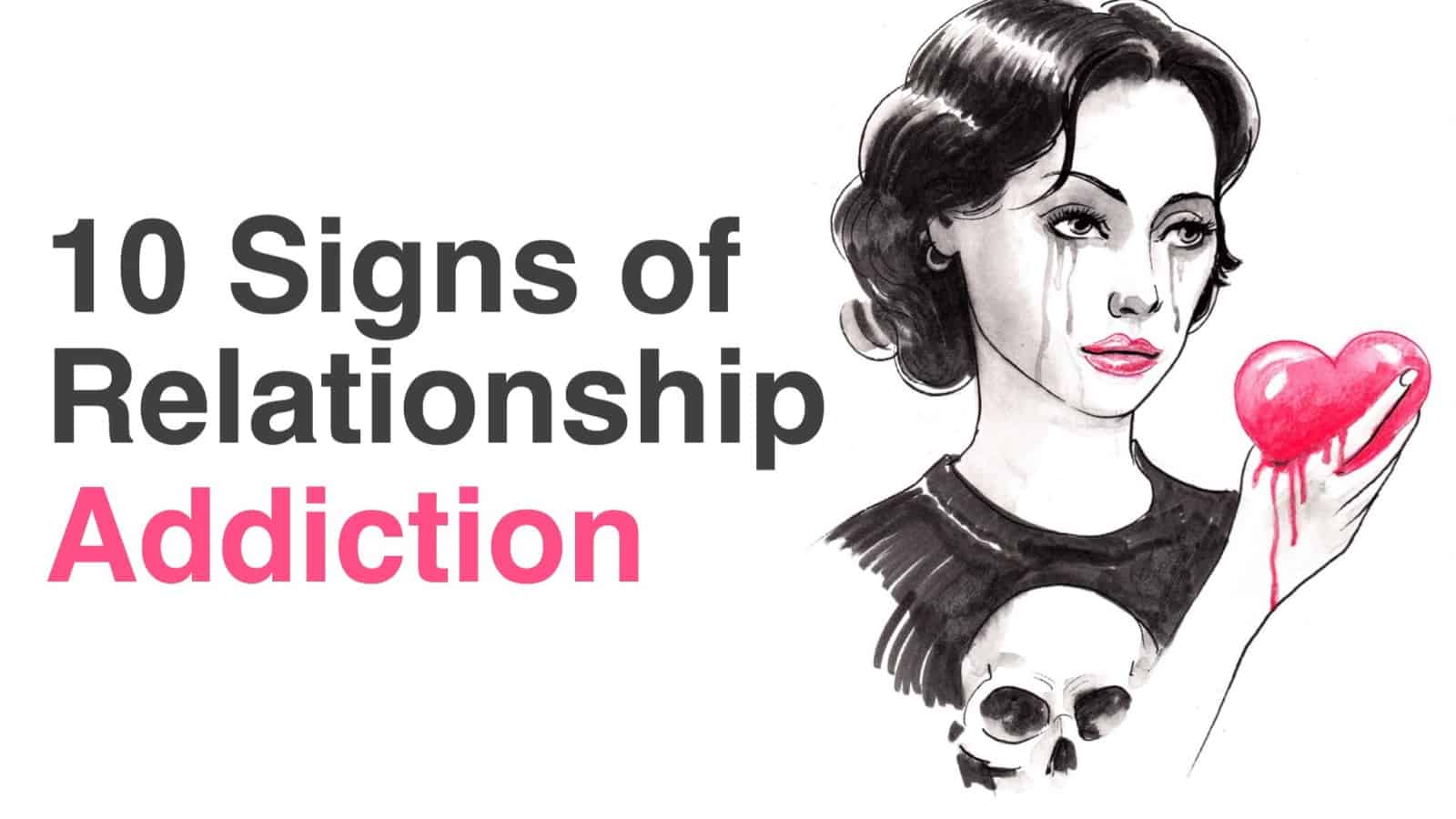When you’re in a good relationship, it’s full of joy, making memories, and having a good time being together. Sadly, many people don’t know the happiness of this kind of union because their relationship is full of heartache and sorrow. Identifying red flags on a dysfunctional marriage isn’t always as easy for the person in the situation as those around them.
So how do you know if your relationship is toxic? If you’re involved in a dysfunctional relationship, it can cause you a great deal of pain. Consequently, when you’re in an unhealthy situation, the issues only seem to grow with time.
It’s scary to use words like dysfunctional and toxic when talking about someone you love, but these terms describe a very real situation that many people find themselves in.
Are You in a Dysfunctional Marriage?
When things between you and your partner aren’t going well, counselors use the term toxic to describe your connection. The very essence of a relationship is to bring you happiness. You want someone who provides emotional support and fulfillment, and if your relationship doesn’t get those things, then it’s a dysfunctional.
A connection that is unstable and destructive is often a dead-end situation that’s toxic. Did you know that children who grow up under dysfunctional parents often seek toxic partners in their life? It’s odd because you would think that these individuals would want something different for themselves.
Ironically, even if you depend on your partner to provide your happiness, it’s a sign of dysfunction. The emotional roller coaster that toxic relationships offer is too much for a person to handle. While there’s no perfect relationship, everyone needs someone that builds them rather than tears them down.
A Classic Example of a Dysfunctional Marriage
Consider this example. Rachael and Kenny have been married for twenty years. Things started great, but over time they’ve grown apart. Rachael suspects Kenny of cheating. He’s constantly working overtime and taking more trips out of town than usual.
She feels they no longer communicate. While they still talk and love each other dearly, the frustrations and distrust she has for him are slowly making her consider leaving. Rather than confronting the issue and learning the truth, Rachel continues to sweep their problems under the rug.
Kenny is frustrated from working so much, and he is faithful to his wife. He becomes frustrated with her because he feels she no longer treats him the same. She’s constantly accusing him of lying, even when he’s honest. Will this couple last?
The main issue here is a lack of communication. If they would only sit down and talk things out, they might save this marriage. However, they ignore the obvious issues and let things fester.
Fifteen Signs of A Dysfunctional Marriage
A dysfunctional marriage can bring you many negative experiences, and those around you will often see the signs before realizing there’s an issue. Here are some indications that you’re in a toxic situation and need help, or you should get out!
1. Disappointment and Frustration
It’s exceedingly difficult to work on the easy things in the relationship, despite using maximum effort and hard work. Working with your spouse is nothing short of frustrating, and you feel attached by an insensitive egotistic narcissist every time you try to discuss the matters.
2. Anger and Bitterness
When there’s resentment in your marriage, it’s like a deadly poison that kills from the inside out. When there is anger and bitterness that festers under the surface, it’s hard to keep things healthy. Prolonged resentment is usually a conflict of values and an overly exaggerated sense of pride, but these underlying toxins can destroy your relationship.
3. Indecision
One major red flag of a dysfunctional relationship is when you are frequently skeptical about your partner’s conduct. A toxic individual will be pleasant, compassionate, and charming one night, but they’re the complete opposite the next day.
If your spouse seems to be more like Jekyll and Hyde, then you will live on the edge and watch your actions and tone with them.
4. Domination
Does one person make all the decisions in your marriage, and one party has no say? If your relationship has a hierarchy where one person runs the show, it will not work. This union is one-sided, and the person who rules the roost is often demanding and controlling.
 5. Constant Criticism
5. Constant Criticism
Your partner should build you up and not tear you down. According to Rachel Eddins, M.Ed., LPC-S, CGP from the Eddins Counseling Group, couples who criticize each other need firm boundaries. If your spouse is continually critiquing you till you feel like you’re walking on eggshells, you need counseling and the help of a third party to identify the root cause.
6. Grudges Are a Hallmark of Dysfunctional Marriages
Holding grudges is very juvenile behavior, yet many people harbor unresolved feelings. Grievances stem from unsettled complaints, and it’s not uncommon for one party to feel victimized by their spouse. Resentment can fester like a malignancy in your union, and it can eat away at the foundation of your relationship, which causes ruin.
7. Boundary Infringements
Everyone has personal boundaries they create to protect themselves. When these boundaries are crossed, it makes you feel vulnerable and unsafe. A dysfunctional marriage violates the limits you’ve established as healthy, and the other party doesn’t care about the damaging consequences of their actions.
8. Pointing Fingers with The Blame Game
When a couple is unhappy, it’s easier to point the finger at the other party than take responsibility. One of the main reasons for playing the blame game is a lack of communication. When people stop discussing and working on the issues, it’s easy to blame the other person for the disconnect.
9. Relying On One Person for Happiness
You are responsible for your happiness, and you can’t depend on someone else to supply that to you. If your spouse has the burden to make you happy, then it’s never going to work. Sure, they can bring joy to your life, but you must learn how to be satisfied with or without them.
10. Absence of Trust
Trust is one of the core building blocks that you build your foundation of marriage on. If you have no trust for one another, then your union is on shaky ground. When trust is broken, you won’t last long.
A dysfunctional marriage is one where you constantly question one another. You question their motives, their stories, and everything about them.
11. Friction and Opposition
Is there underlying friction that no one is addressing? In many cases, the couple is reluctant to deal with the issues because they want peace. They don’t like to initiate another argument, so they would rather say nothing.
Having a good relationship means communicating, but if there’s so much tension that you can no longer talk about the issue, it’s toxic. According to Sherry Gaba LCSW, relationships fall into two categories, healthy or dysfunctional. If you’re not in a healthy union, then it’s toxic.
12. Unhappiness
No relationship is sunshine and rainbows all the time, but you should be happy overall. However, if you constantly feel unhappy with your partner, you need to find out why the situation has become dysfunctional. Everyone deserves to be with someone who makes them happy, and long-term unhappiness is emotionally damaging.
13. Emotional Detachment Becomes the Norm in a Dysfunctional Marriage
Part of being in a relationship is for the emotional security it provides. Sadly, when your union is toxic, it’s possible you don’t feel this level of connectivity with your spouse. When there’s selfishness or one party is emotionally unavailable, it’s a sign of a toxic union.
14. Conflict
Every relationship has conflict, but it’s how you handle this conflict that defines your union. The unhealthy partnership will engage in damaging communication, and they will see their partner as destructive or a troublemaker. Without conflict management skills, the tensions will snowball.
15. Disloyalty and Betrayal
It’s not unheard of for people to cheat on each other, but it doesn’t make it hurt any less. According to research conducted by the Health Research Fund, 60 percent of marriages will deal with infidelities. Additionally, most of these relationships begin at work.
Once a marriage has such a betrayal in the mix, it’s often hard to trust and get past these blunders. The same study found that only 31 percent of marriages will stay together after one partner cheated, so stepping outside the union can often be a death sentence to your relationship.
 Final Thoughts: Do You Repair a Dysfunctional Marriage
Final Thoughts: Do You Repair a Dysfunctional Marriage
Why do people stay in toxic relationships that bring them more heartache than joy? Remember, if your union is not healthy, it’s dysfunctional. Sure, there are varying degrees of toxicity, but if your marriage is not bringing you joy, then you likely know the sting of pain.
Sometimes a situation is toxic, but even dysfunctional marriages can be saved. Only you can make the decision on how much work and effort you will put into your union to turn things around. Regrettably, many folks would rather walk away than work it out, but in some situations, that’s best for both parties.
The post Counselors Explain 15 Signs of a Dysfunctional Marriage appeared first on Power of Positivity: Positive Thinking & Attitude.










